For the many Tucsonans and visitors who prefer to give their business to locally owned, independent restaurants that are sustainability-minded as well as delicious, this is your ultimate guide to where you can confidently vote with your wallet and taste buds. This group of businesses are sustainability leaders among the Southern Arizona restaurants currently Certified by Tucson City of Gastronomy, the nonprofit steering the UNESCO City of Gastronomy designation for Tucson and its southern Arizona foodshed. The rigorous certification process involves evaluating how restaurants support local producers, promote heritage foods, take care of employees, give back to the community, and implement sustainability practices.
All of the eateries in this guide are locally owned and were curated by Jonathan Mabry, the Executive Director of Tucson City of Gastronomy (TCOG). These green business practices not only reduce their environmental impacts and carbon footprints but also set positive examples for other food businesses.
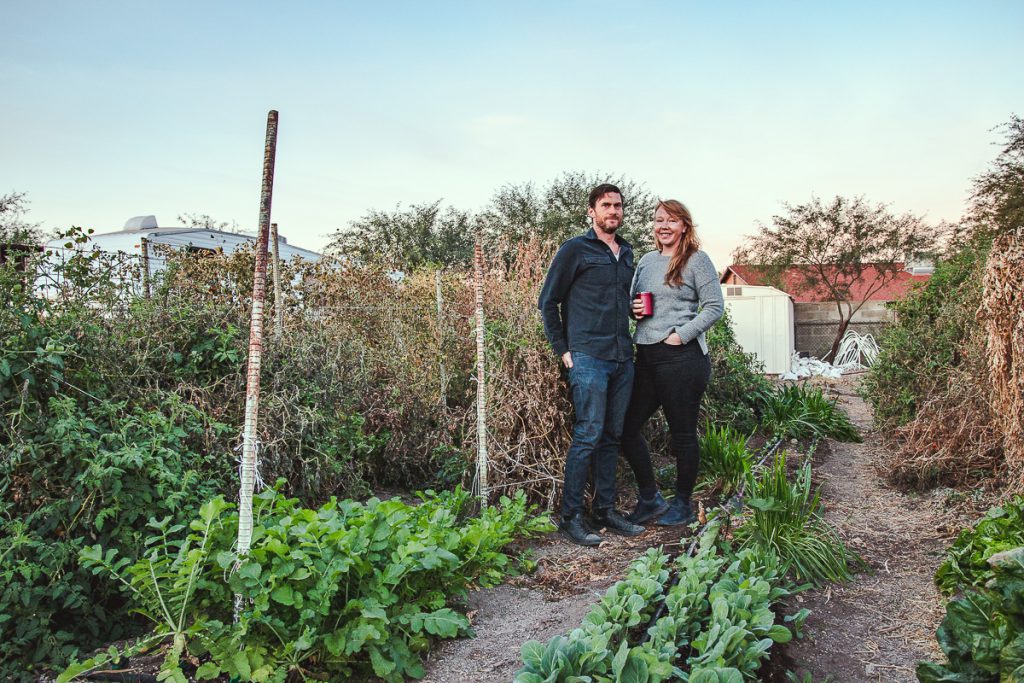
This charming farm-to-table cafe sources most of its produce from its own urban farm- Cooking herbs grown on site are nourished by a wastewater irrigation system and food waste compost. Their to-go utensils, containers, and straws are plant-based and compostable. Their market boasts a variety of Southern Arizona food products with eco-friendly and bulk packaging, and their adjacent Natural Wine shop is stocked with small-batch wines made with bio-dynamic practices.
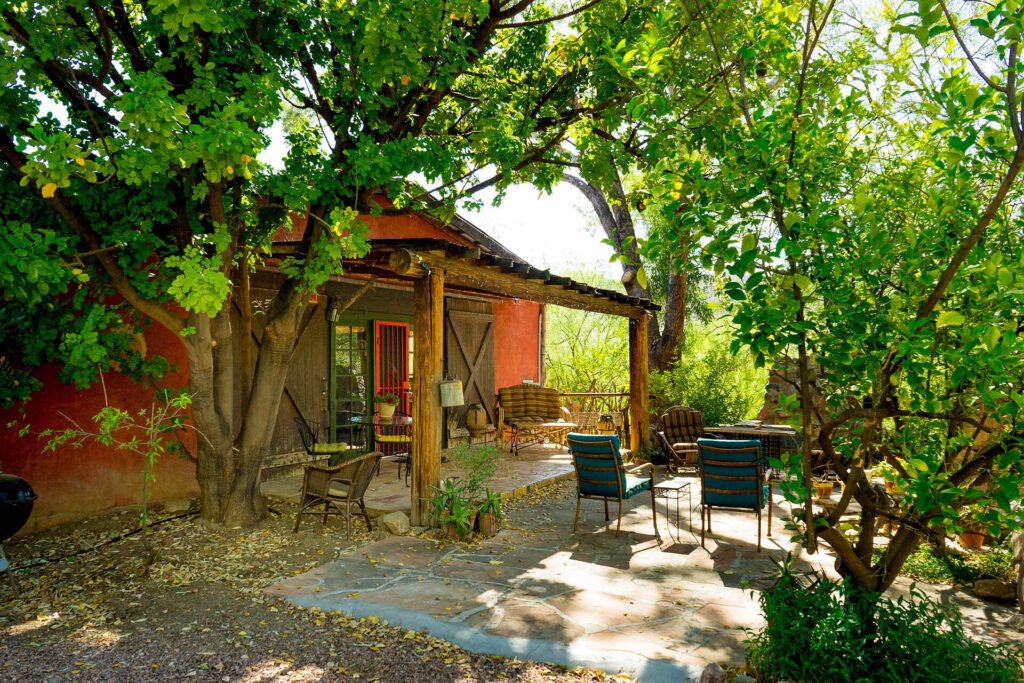
Aravaipa Farms is known for its fresh ingredients and scenic setting. Each meal is made from their own organic garden and orchard produce. To conserve water, the farm uses drip and furrow flood irrigation and grows desert-adapted crops. The Inn also makes a point to minimize plastic usage, offers bulk-purchased amenities, and any food waste is composted and fed to their chickens.
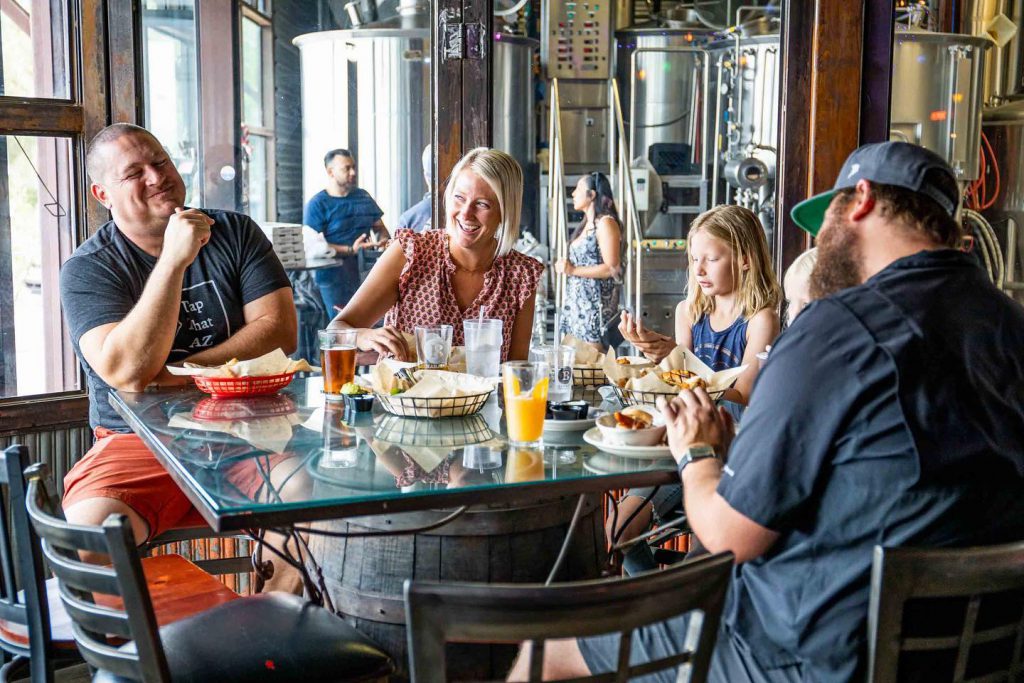
With a vibrant and industrial atmosphere, Barrio Brewing Company serves quality bar food with a local twist and a wide selection of craft beers that have garnered a loyal following. It has also implemented several sustainability practices as part of its operations. The founders repurposed the historic warehouse using locally sourced materials, remnants, and salvaged art. They send spent grain from brewing to local farmers for livestock feed and save food waste for composting at a local community garden. Barrio replaced heat exchangers to reduce water usage by 40% and prioritizes recyclable materials and packaging.
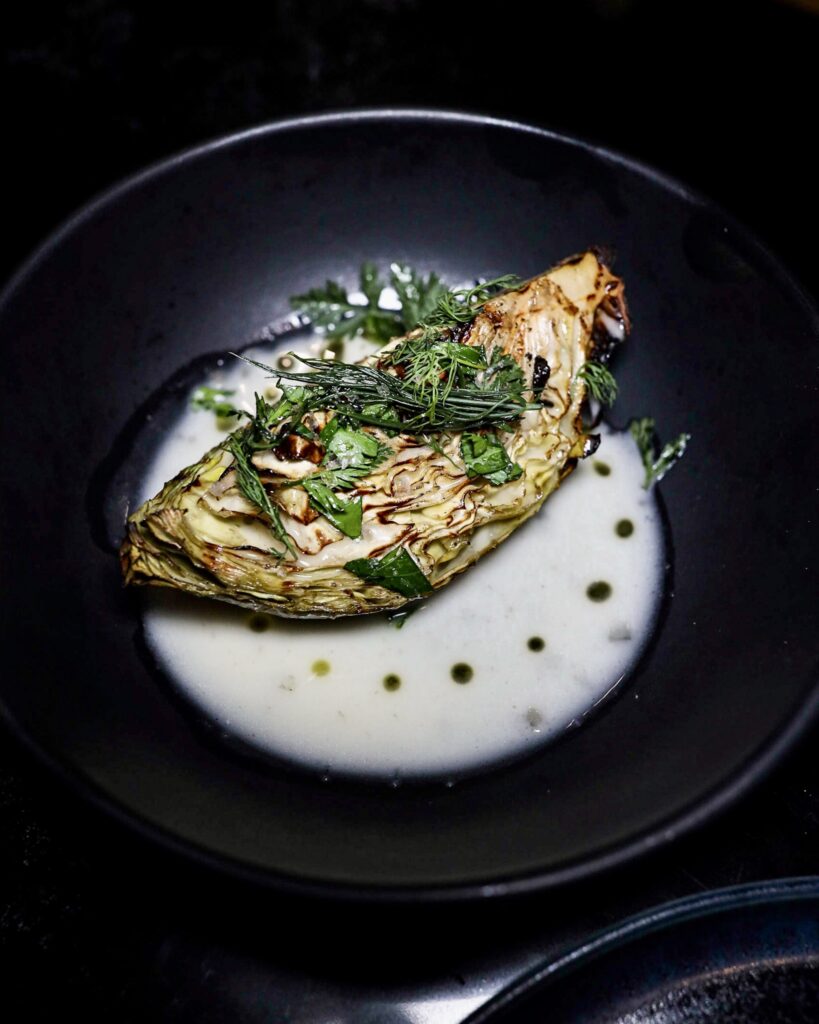
Located in a historic warehouse, Bata has a locally inspired and seasonal menu, with almost every dish cooked over wood fire. Bata has implemented a range of sustainability practices that reflect a commitment to environmental stewardship. Their approach includes sourcing produce, meat, and grains from Southern Arizona suppliers. They also procure fresh seafood from San Diego’s coast. Bata operates with a low-waste philosophy, composting food waste and recycling cooking oil. The restaurant also uses energy-conserving LED lighting to reduce energy consumption and offers drinking water to customers only upon request to conserve water.
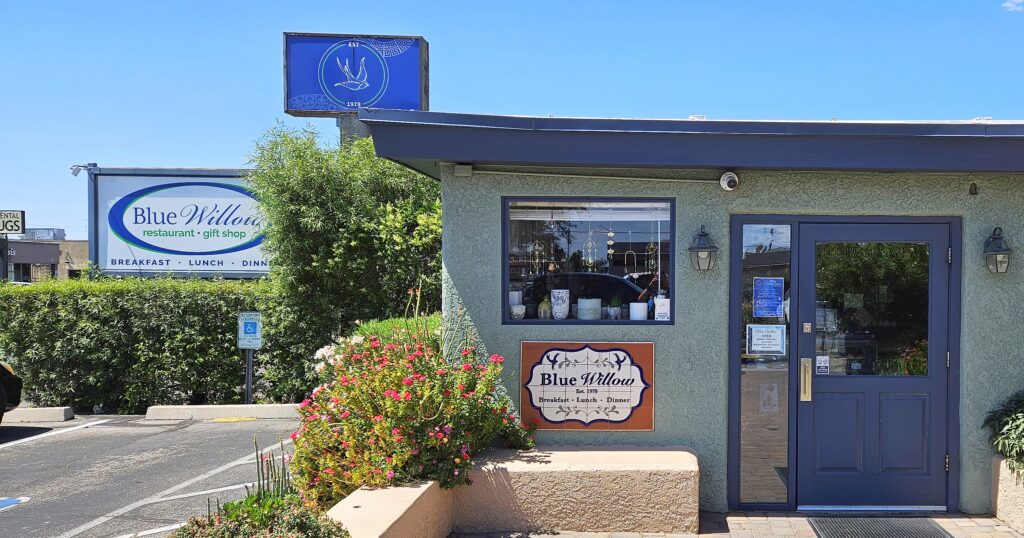
Are you looking for your new go-to spot for a cozy brunch? Blue Willow sources many ingredients locally, including grass-fed beef. They grow herbs for cocktail ingredients in a hydroponic garden in the bar. The restaurant is partly powered by renewable energy sources and has switched to energy-conserving LED lighting. To reduce waste, they recycle all cooking oil, many items are ordered in bulk to reduce packaging waste and shipping emissions. All to-go order materials are, of course, compostable or recyclable to reduce environmental impact.
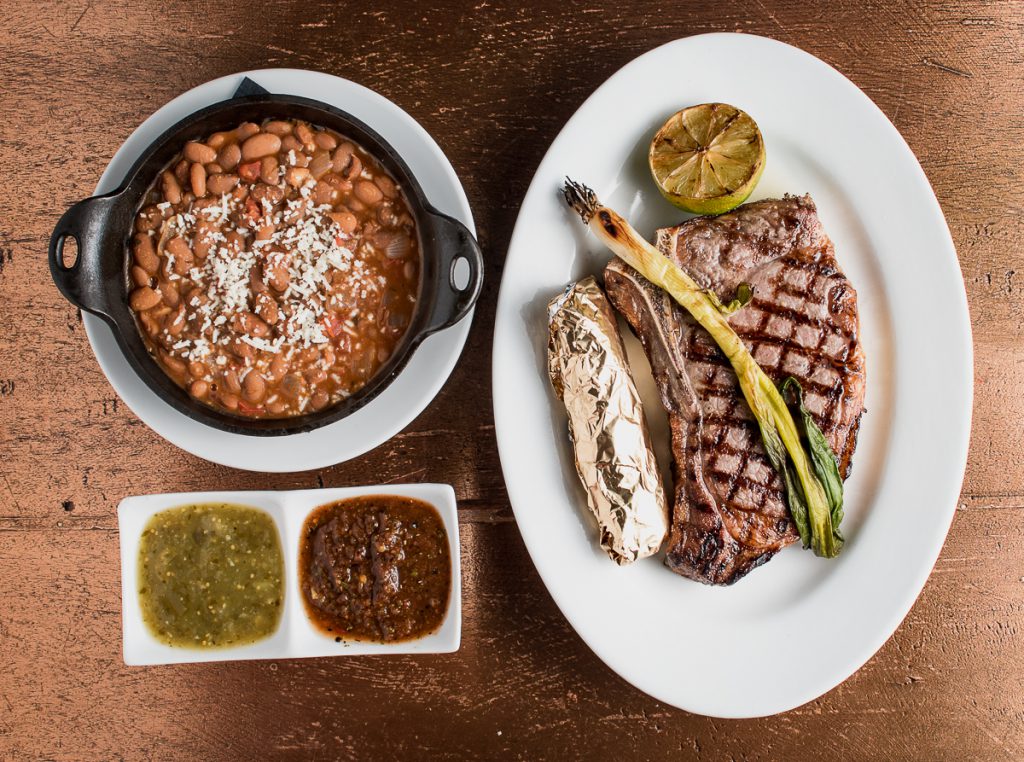
Offering a unique dining experience that blends traditional Mexican culinary heritage with a modern approach to steak and seafood, this family-owned restaurant prides itself on being Tucson’s only 100% grass-fed, mesquite-grilled sustainable steak and seafood restaurant. They source only grass-fed, all-natural beef and cage-free poultry, and their seafood sourcing follows the sustainability guidelines of The Monterey Bay Aquarium Seafood Watch program. They buy local, non-GMO produce whenever possible and consistently support local growers and the UA Community School Garden program. All used cooking oil is sent to a facility that converts it into biofuel, and they use eco-friendly takeout items to reduce plastic and Styrofoam usage. The restaurant also uses LED lighting and energy-conserving appliances to reduce energy consumption.

Charro Vida is known for its unique blend of heart-healthy Mediterranean diet principles and native Sonoran cuisine. The menu is “flexitarian,” offering a selection that includes fish, fowl, and meat, with a strong emphasis on plant-based and sustainable food. They exclusively purchase natural, cage-free chicken and all-natural beef, and source their seafood under the sustainability standards of the Monterey Bay Aquarium Seafood Watch program. They purchase locally grown, non-GMO produce when feasible and regularly assist local farmers and the UA Community School Garden initiative. They minimize their use of plastic and Styrofoam by using eco-friendly takeout options. Used cooking oil is recycled into biofuel at a local facility. The restaurant uses energy-efficient appliances and, where feasible, uses LED lighting. Buying goods in bulk decreases packaging waste and carbon footprints associated with transportation.
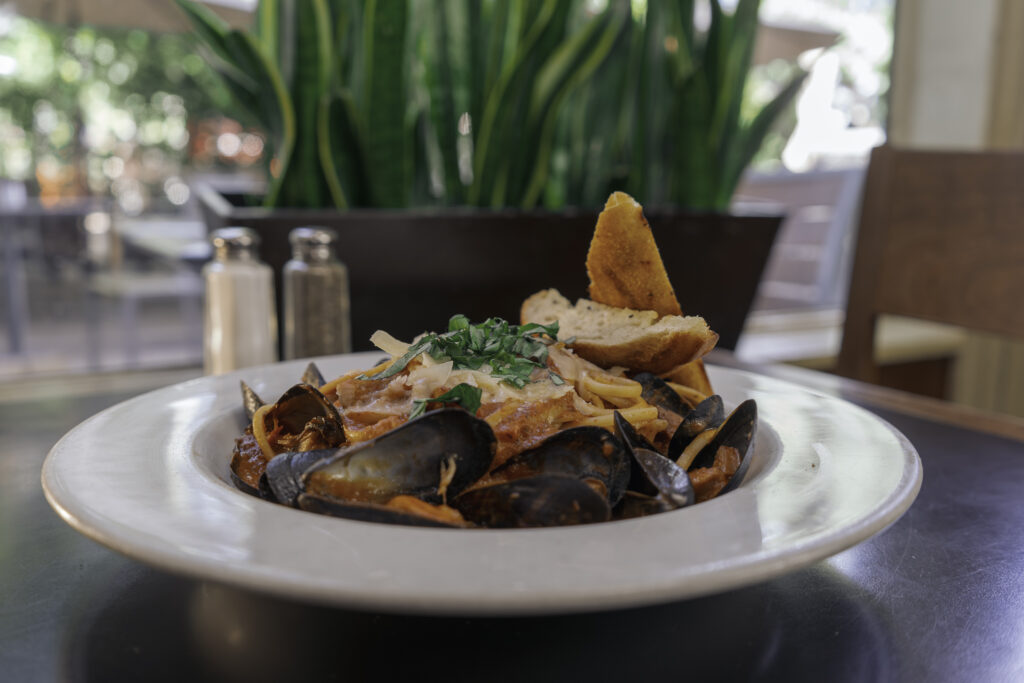
This historic and popular downtown dining spot located in Hotel Congress offers an eclectic and historic dining experience, with a reputation for delicious, inspired fare that is alive with flavor. The menu includes creative sandwiches, updated classics, and house-made desserts, with a focus on using local ingredients. They go above and beyond in the name of sustainability. In addition to partnering with UA Compost Cats to process food waste, they utilize low-flow plumbing fixtures and waterless urinals to conserve water. Much of their produce and meats are locally sourced and they also grow their herbs. Their straws and to-go containers are compostable. Finally, they provide an electric car charging station for customers, promoting environmentally friendly transportation.
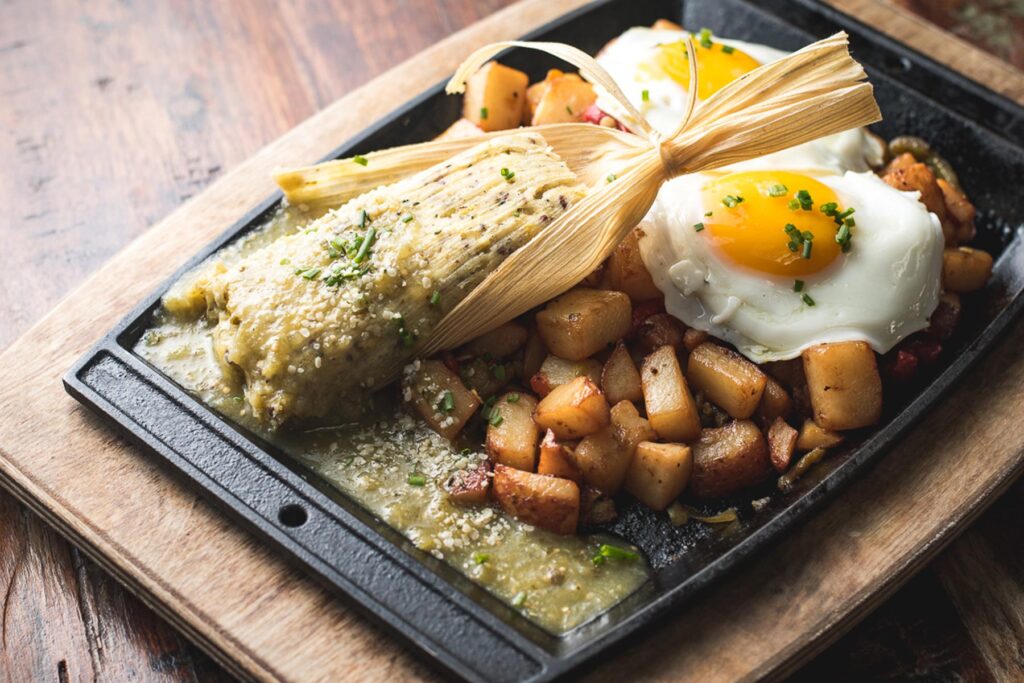
Established in 1922, El Charro Cafe is renowned for being the nation’s oldest Mexican restaurant in continuous operation by the same family and is a significant part of Tucson’s culinary heritage. Celebrated for its traditional Northern Mexico-Sonoran style Mexican food, El Charro Cafe also adheres to several sustainability practices. The family owners only buy natural, cage-free poultry and all-natural beef, and they source their seafood according to the Monterey Bay Aquarium Seafood Watch program’s sustainability guidelines. They buy non-GMO, locally-grown produce wherever possible and frequently support local farmers and the UA Community School Garden program. Used cooking oil is transported to a facility where it is converted into biofuel. By selecting environmentally friendly takeout containers and utensils, they reduce the amount of plastic and Styrofoam they use. The eatery uses energy-saving appliances and LED lighting.
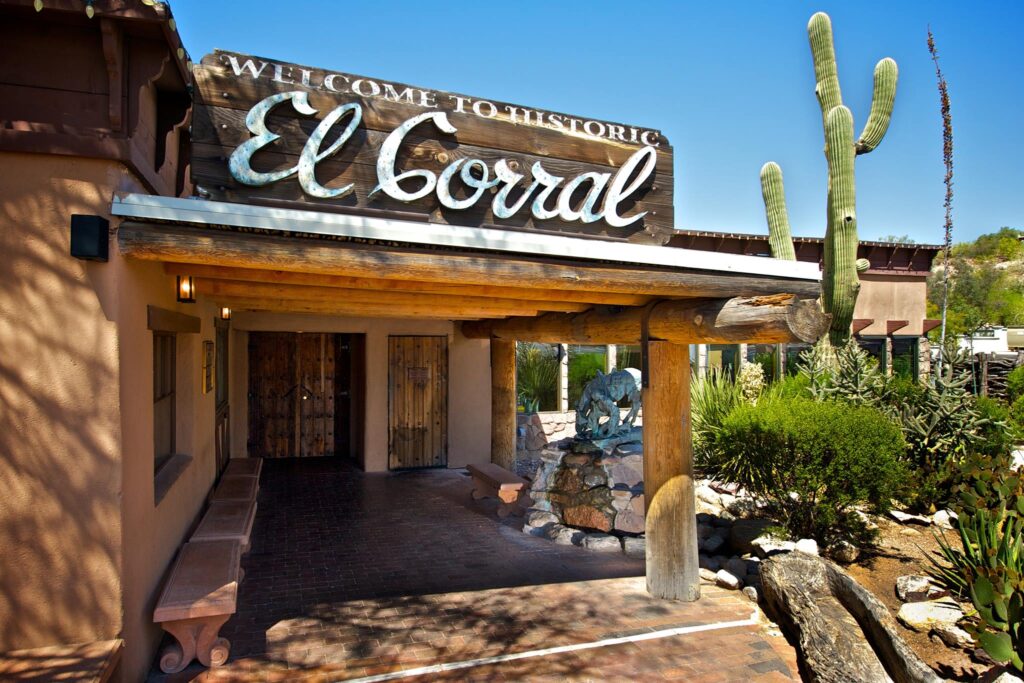
The old hitching rails for horses are still out front of El Corral, but this adobe-built landmark steakhouse is blazing a trail by setting a high standard for sustainability while preserving its historical charm. They are proud to participate in the Scale Up program by Local First Arizona, showcasing their commitment to reducing their environmental impact. Their energy efficiency measures include LED lighting, high-efficiency heating and cooling systems, and low-flow water fixtures that help to conserve water. El Corral The same green practices are used at their sister restaurant Pinnacle Peak.
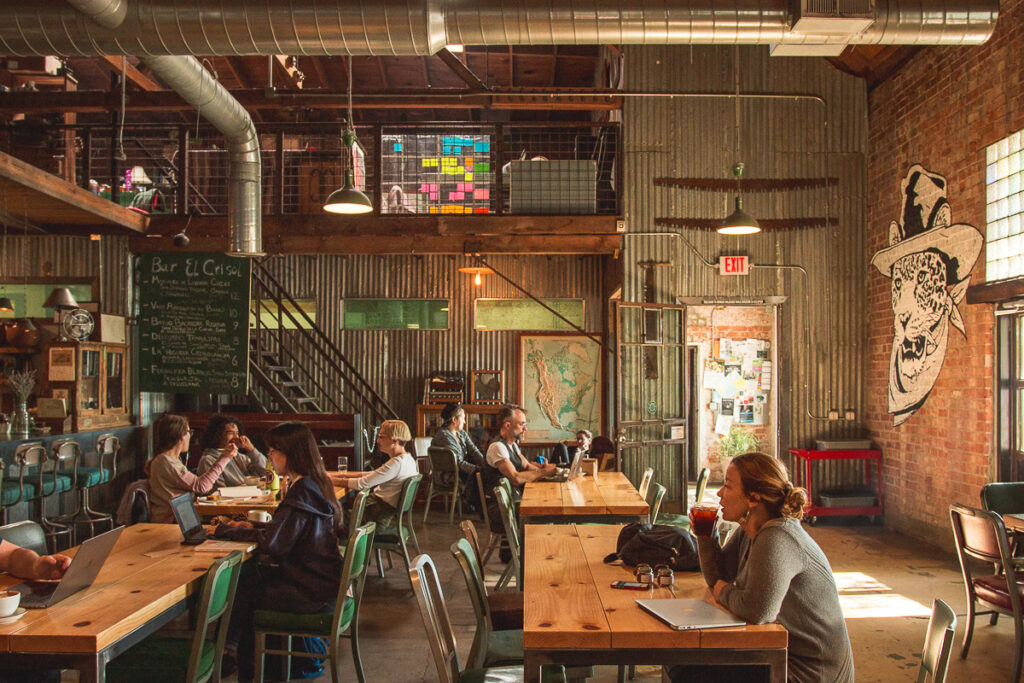
Both locations of this popular coffee roaster and cafe are in historic buildings whose reuses are greener than constructing new buildings. They are dedicated to sustainable and free-trade sourcing of coffee and food ingredients, use 100% organic milk, and encourage customers to reduce waste by offering reusable glass jars for to-go orders. They prioritize low-waste packaging, including corn-based lids, straws, and cold cups, and are the only coffee roasters in Tucson offering compostable coffee bags. To conserve water, they are phasing out water-wasting reverse osmosis, and their grease traps are cleaned by a service that converts food grease into biofuel. Their most impressive commitment to the environment is delivering most of their wholesale coffee orders by cargo bike.
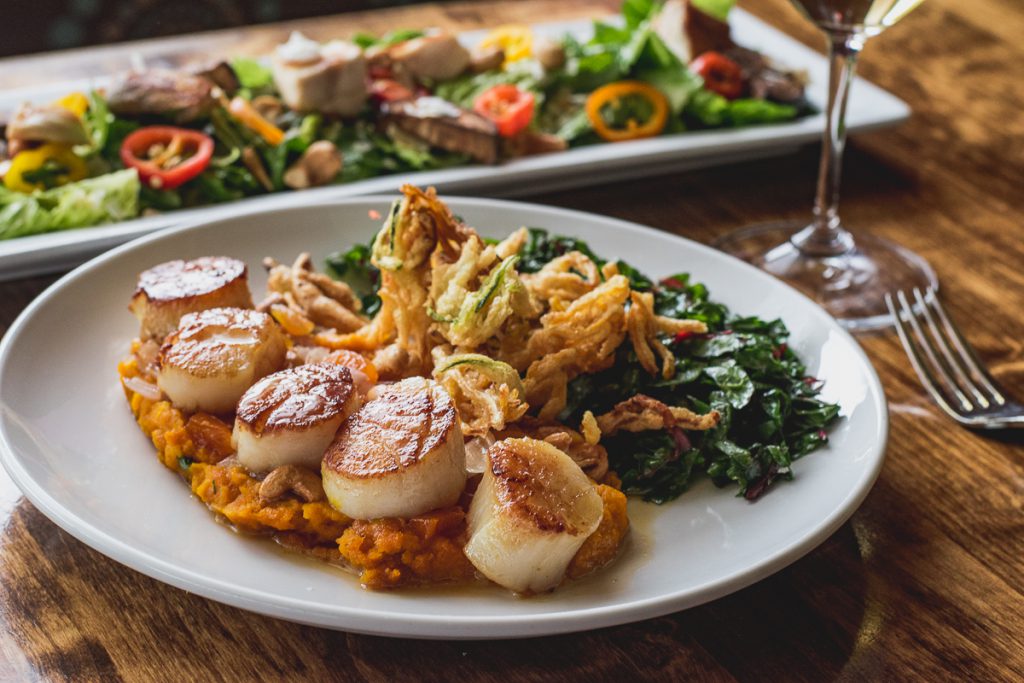
Feast is known for its scratch-made cuisine, with nearly all recipes prepared in-house. The menu changes monthly, reflecting the seasonality of ingredients and the kitchen’s creativity. Sustainability is also a cornerstone of their operations. They use ingredients that are third-party certified as sustainably sourced and ensure that most animal products are hormone-free, antibiotic-free, and/or cage-free. Feast sources ingredients from local producers and their own garden. Waste reduction is achieved through composting food waste and recycling cooking oil. Feast also focuses on energy conservation, using energy-efficient appliances, LED lighting, and a solar water heater. Packaging waste is reduced by using compostable products.
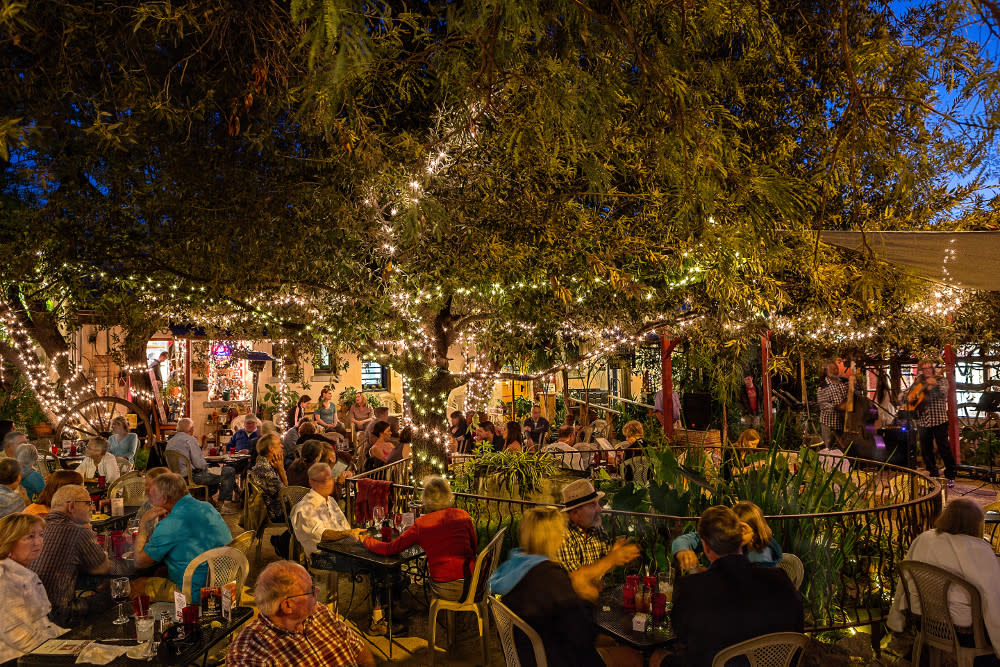
Tucked inside the walls of Old Town Artisans is Jojo’s (formerly LaCo and Tallboys). They offer a delightful mix of Mexican, Spanish, and Basque cuisines, al fresco dining in a shady courtyard, a rustic Cantina, and live music. JoJo’s sustainability practices are centered around responsible sourcing and waste reduction. Their courtyard is watered by their rainwater harvesting barrels. They have installed LED lighting and the restaurant is partly powered by renewable energy. They source seasonal vegetables and meat from local purveyors whenever possible along with recycling their cooking oil, and they use eco-friendly to-go packaging along with paper straws to reduce the use of plastics and styrofoam.
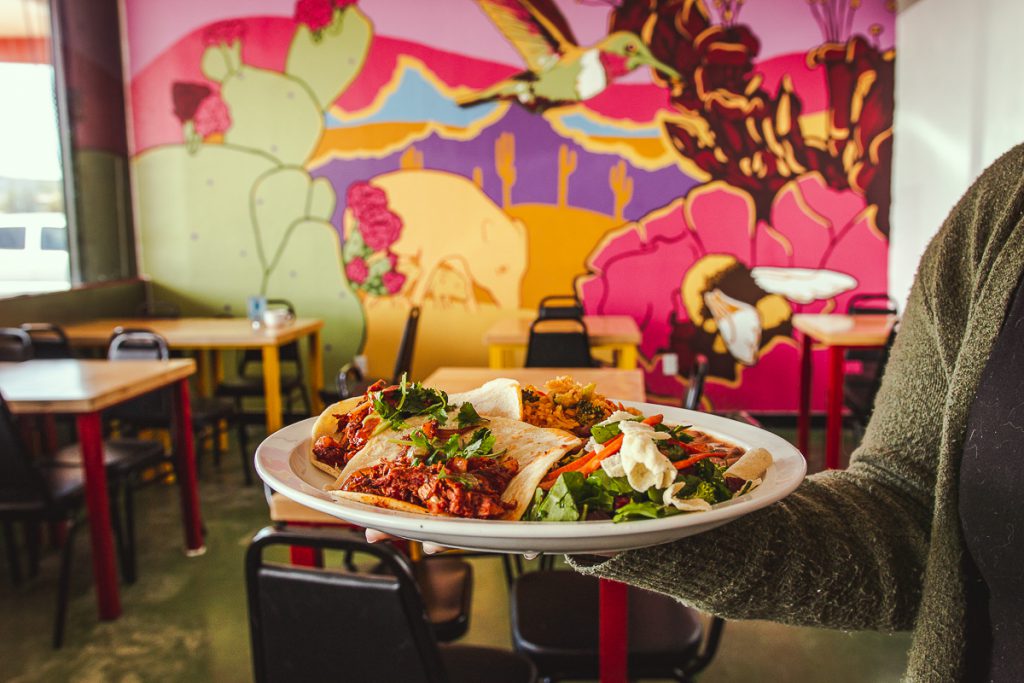
La Chaiteria’s claim to fame is its creative menu which includes fantastic vegan and non-vegan options. You’ll find both traditional dishes from Alamos, Sonora, and creative interpretations of classic Mexican fare. The food is prepared with a focus on simplicity, incorporating local ingredients when seasonally available. The restaurant has embraced environmental responsibility and prides itself on sourcing some of its ingredients from local producers and wild food harvesters. Meats are always hormone- and antibiotic-free and sourced locally, and the vegetables used are organic, except spinach. The restaurant recycles its cooking oil, uses LED lights, and water is conserved by providing drinking water only upon request. Any excess water is used to water plants and foliage outside. All to-go containers, utensils, and straws are compostable, and customers are encouraged to bring their own reusable containers.
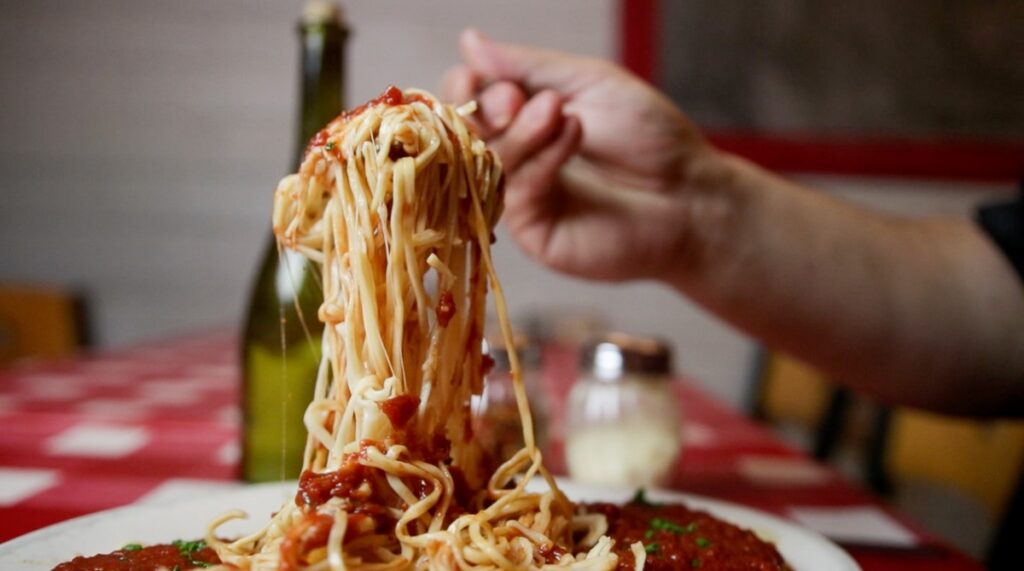
Mama Louisa’s has been a beloved Tucson landmark since 1956. They offer a traditional Italian dining experience with a Southwestern twist, serving classic Italian dishes passed down through generations. They are known for making homemade pasta with locally grown wheat, and source meats, produce, and herbs from Southern Arizona producers. Their operations also show a strong commitment to sustainability. They divert food and water waste to on-site foliage or recycle it into compost on-site or through a service. They also recycle all their cooking oil. To reduce the use of plastic and Styrofoam, the restaurant uses refillable or compostable containers, utensils, cups, and straws. The restaurant is partly powered by renewable energy, and all lights are LED. Water is conserved by offering it to customers only upon request.
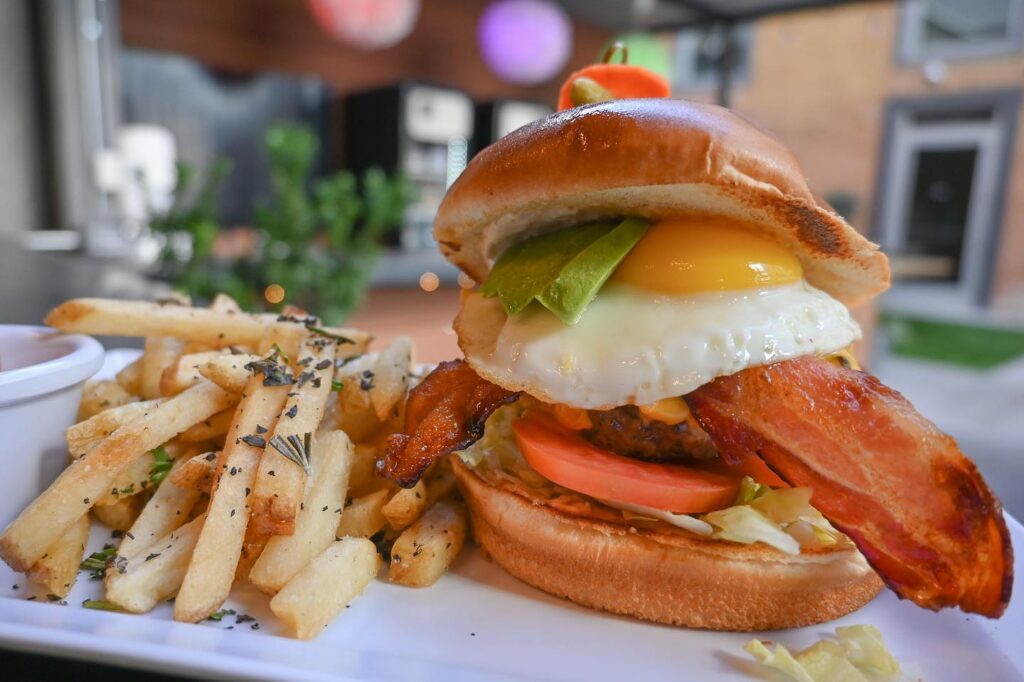
The Monica menu features classic options and Sonoran Mexican dishes for breakfast and brunch, as well as quick-fix sandwiches, salads, soups, and full-plate entrees for lunch and dinner. All animal products are hormone-free, antibiotic-free, and/or cage-free, and some consistently used ingredients are third-party certified as organic and/or fair-trade sourced. They primarily source Arizona-grown produce whenever possible. The restaurant recycles food waste into compost, recycles cooking oil, and uses compostable trash can liners. They use energy-efficient lighting and appliances and are committed to green packaging.
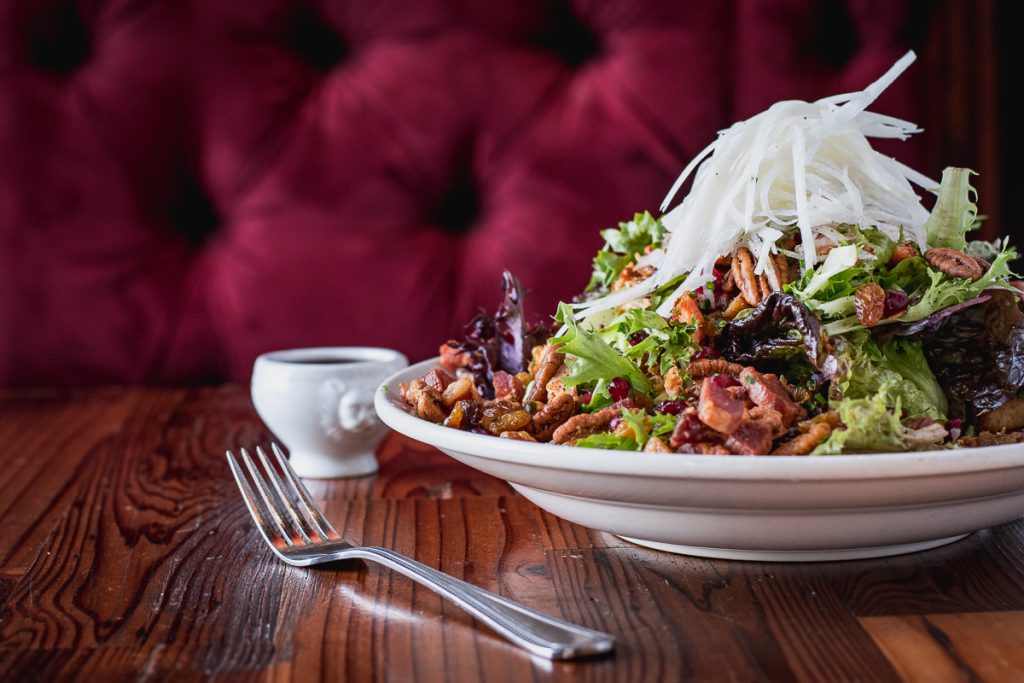
The Parish gastropub specializes in creative, Southern-influenced dishes. They source ethically raised proteins, organically grown produce, and even forage ingredients from the local landscape. Their coffee is also organic, fair trade, and locally roasted, and of course their seafood is sustainably fished. To minimize their environmental impact, they upcycle cooking oils for biofuel, use eco-friendly take-out containers, and use energy-efficient appliances, programmable thermostats, and high-efficiency coolers to conserve energy.
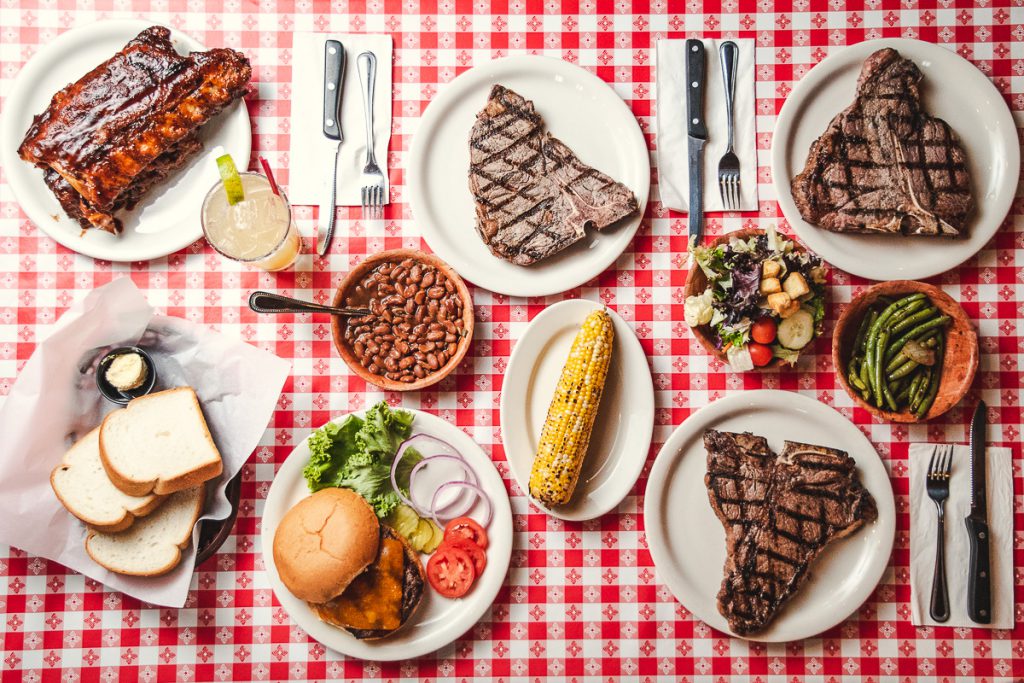
Just like its sister restaurant, El Corral, the restaurant’s team proudly participates in the Scale Up program by Local First Arizona, showcasing its commitment to reducing its environmental impact. Their energy efficiency measures include LED lighting, high-efficiency heating and cooling systems, and low-flow water fixtures that help to conserve water.
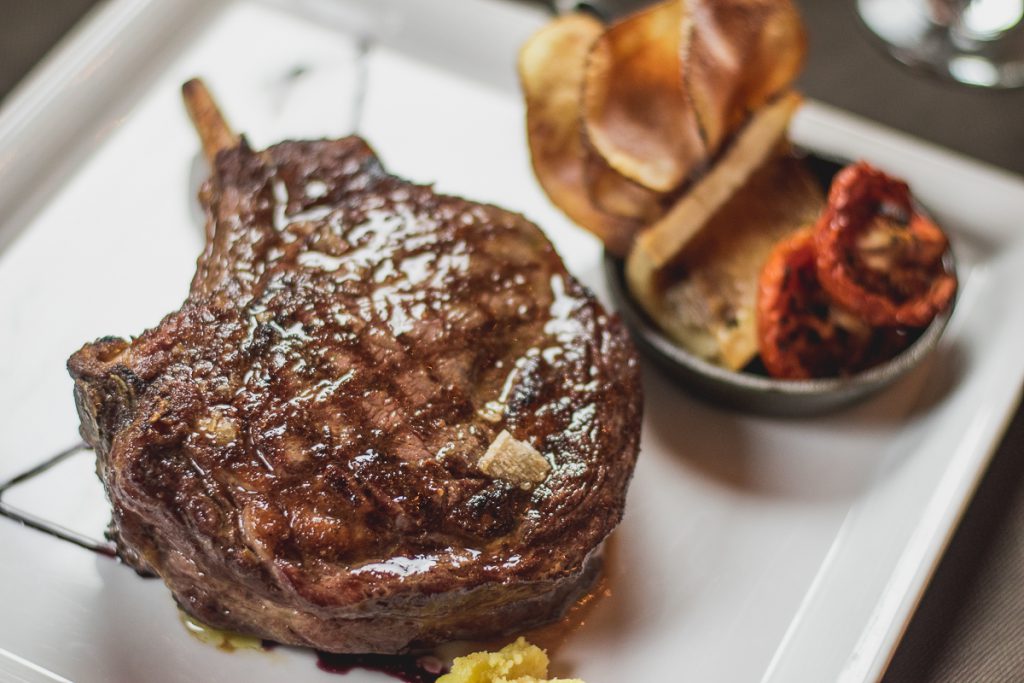
For a sustainable fine dining option, look no further than PY Steakhouse. Almost all of their ingredients are sustainable. Some consistently used ingredients are harvested from on-site and off-site gardens and the desert landscape, or are sourced from the Iskashitaa Refugee Network’s urban gleaning program. They also source hormone-free, antibiotic-free, and cage-free animal products, and recycle food waste and cooking oil. In addition, energy and water conservation measures are in place in the kitchen, and they offer drinking water only upon request.
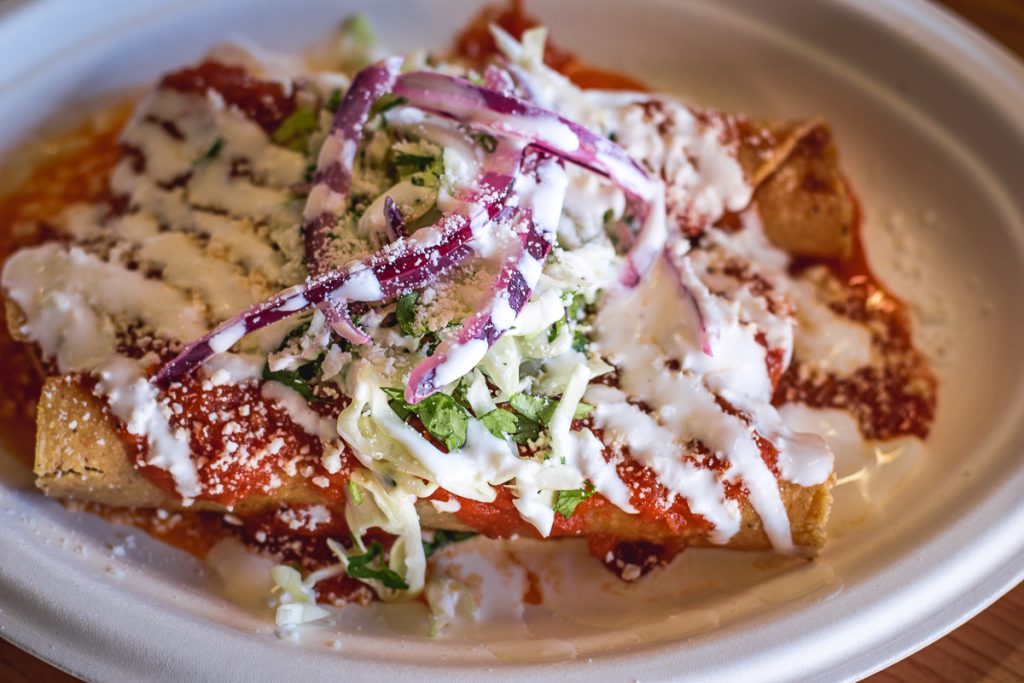
Rollies Mexican Patio is known for its unique take on Tucson-style Mexican cuisine, offering a variety of dishes that blend traditional flavors with creative twists. Their operations are also mindful of sustainability. They use to-go containers made from biodegradable corn husks from Mexico. Glass soda bottles are collected for recycling, and water from melted ice is repurposed to water indoor and outdoor plants. Bulk purchasing reduces packaging waste. They also prioritize energy efficiency by using energy-saving light bulbs when possible, and solar power for outdoor lighting.
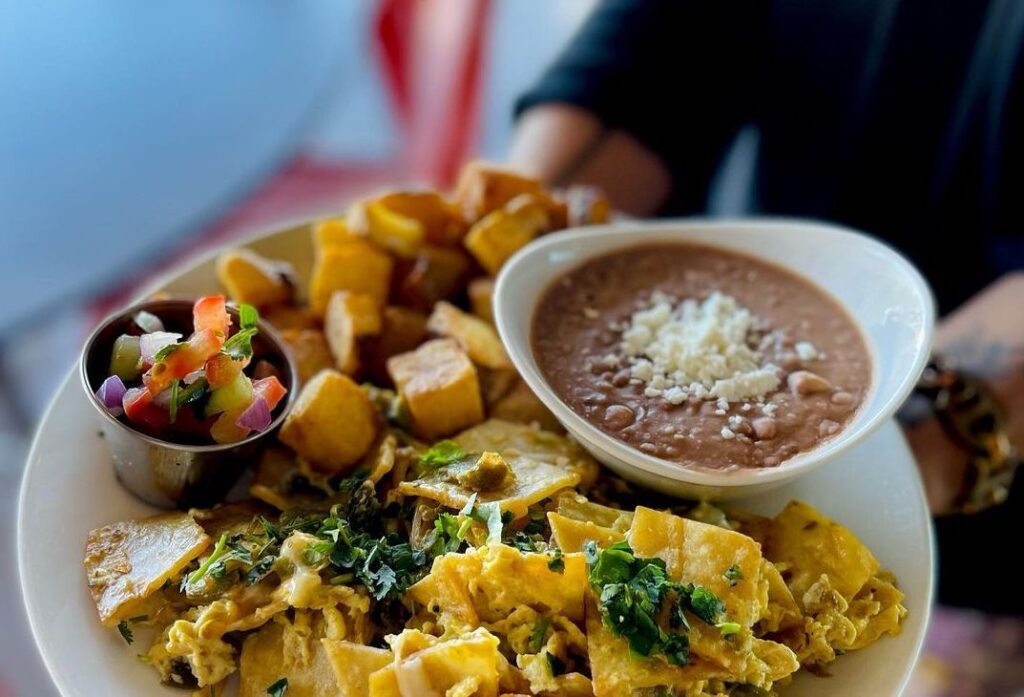
Seis has become a Tucson favorite for its creative takes on tacos and other Mexican food classics, but did you know they’re also focused on sustainable practices? Seis uses all-natural, antibiotic-free, and cage-free chicken and they partner with trusted seafood sources for safe and sustainably sourced fish and shrimp. Their earth-friendly packaging includes recyclable, compostable, or reusable materials, and they use biodegradable straws made from avocado seeds. In addition, they purchase supplies in bulk to reduce packaging waste and transportation emissions.
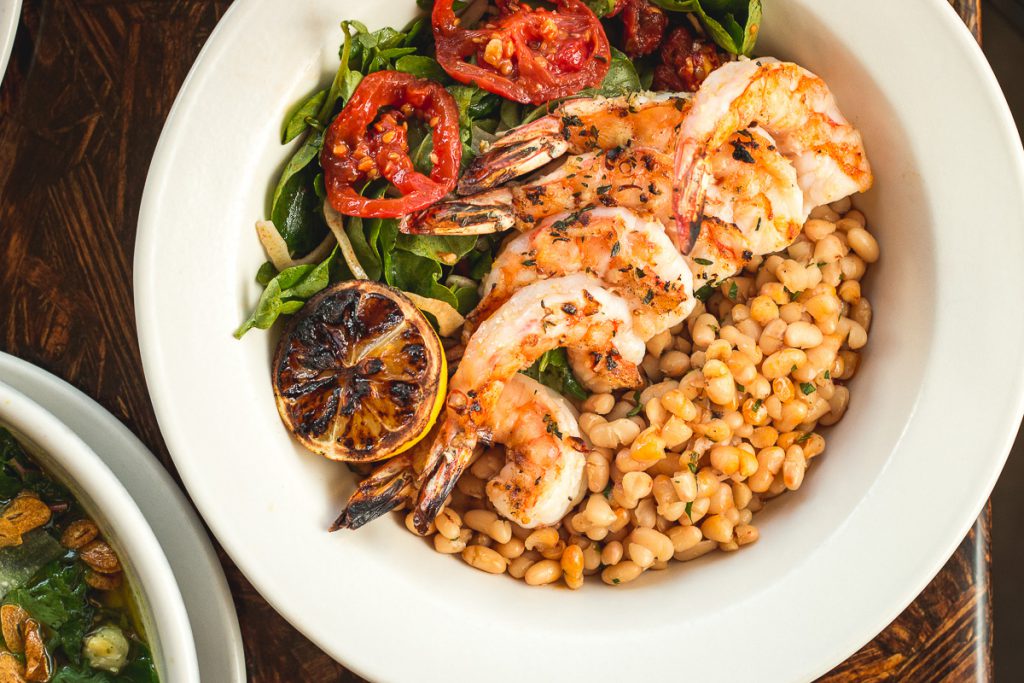
Tito & Pep is a contemporary neighborhood bistro that offers a mesquite-fired cuisine experience and a mid-century modern vibe. Sustainability and ethical sourcing are at the heart of their operations. They source free-range poultry, use organic produce, and offer fair-trade coffee from an all-female cooperative. They also use local, seasonal produce and maintain an herb garden. Their waste management includes recycling cooking oil, avoiding Styrofoam, and using recyclable take-out containers. They also recycle cardboard, glass, and aluminum. They also use energy-saving bulbs to minimize their impact.
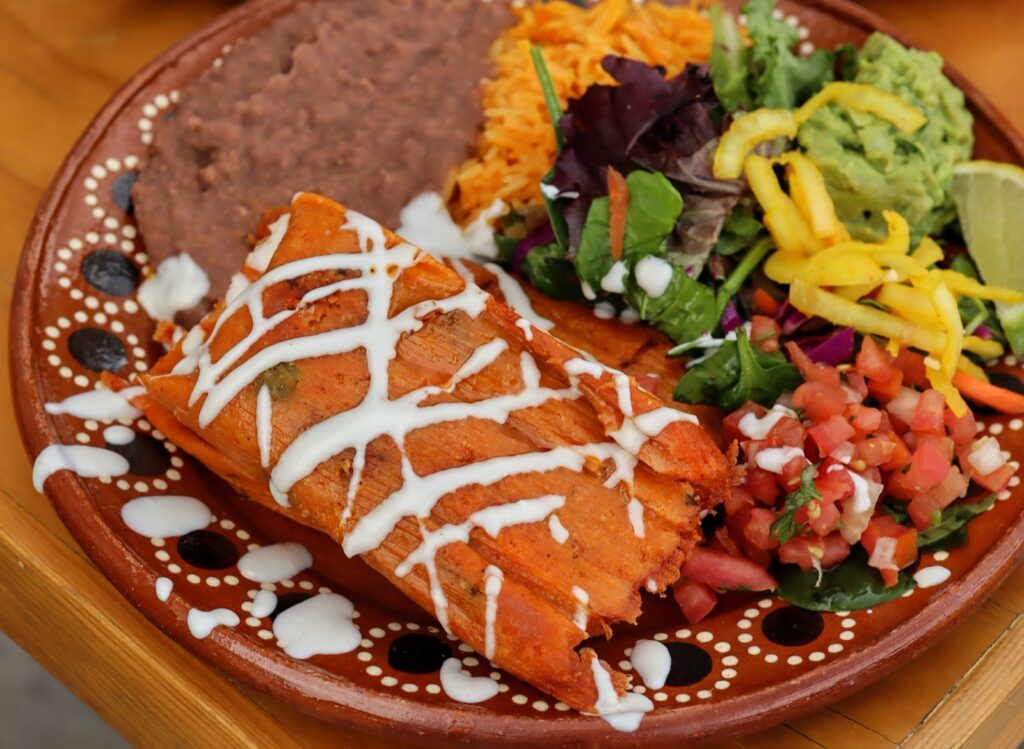
The menus at both locations change daily and focus on Latin-inspired vegan and vegetarian cuisine. Most animal products are hormone-free, antibiotic-free, and/or cage-free. They use organic and sustainably sourced ingredients, and some ingredients are harvested from on-site or off-site gardens or the Iskashitaa Refugee Network urban gleaning program. Food waste is recycled into compost, and used cooking oil is recycled. Solar panels are used at one location and LED lights at both locations. They use compostable containers, utensils, cups, and paper straws to reduce plastic and Styrofoam usage. They buy supplies in bulk to reduce packaging waste.
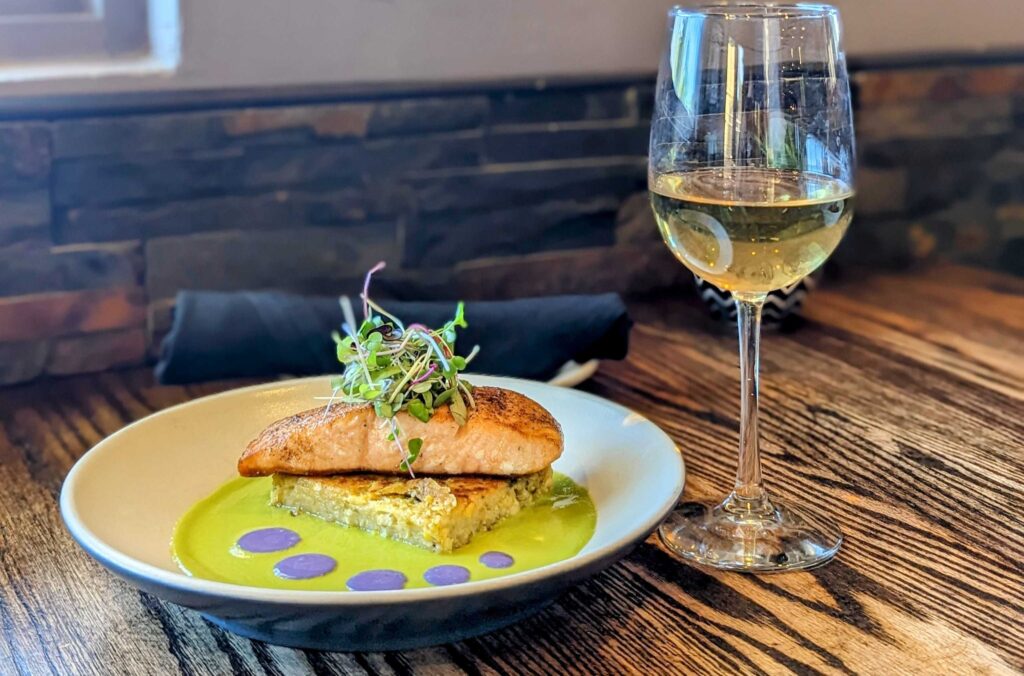
Famous for people’s award-winning Italian-Sonoran fusion dishes, Zio Peppe sources antibiotic-free, hormone-free chicken, sustainably ocean-farmed salmon, and wild-caught shrimp to reduce environmental impacts. They also prioritize supporting local businesses and reducing their carbon footprint by using Tucson-sourced ingredients, including urban gleaned produce from the Iskashitaa Refugee Network. Their cooking oil gets recycled, and they use eco-friendly packaging for to-go orders.